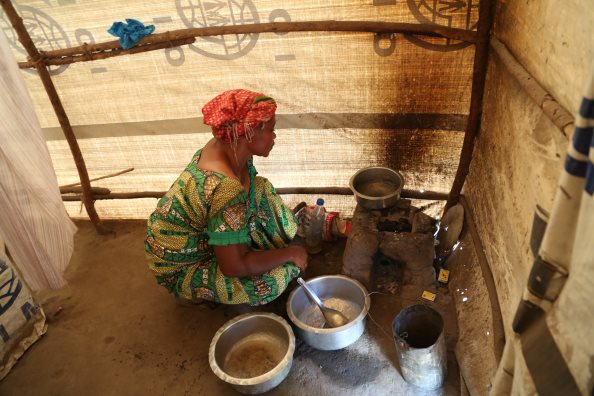In Numbers
256,176 people assisted in July 2022
US$3.2 m cash-based transfers made
US$44.2 m six months (August 2022-Jan 2023) net funding requirements
Operational Updates
- In July, WFP provided cash and food assistance to 184,091 internally displaced persons (IDPs), 68,725 refugees, and 3,360 people from vulnerable communities through resilience building initiatives.
- In early July 2022, the Ambassador of Japan in Iraq visited WFP’s resilience projects in Anbar, funded by Japan. The visit provided an opportunity for Japan to receive a firsthand account of the impact of the projects which rehabilitated 24 pumping and sewage drainage station. The stations continue to support 37 hectares of land enabling communities to grow and harvest crops.
- In July, WFP handed over mechanized farming equipment (tractors) to the Directorate of Ninewa to support small holder farmers in the governorate and enhance the agricultural sector in Ninewa.
- Under the National School Feeding Programme, WFP is preparing for the implementation of the School Feeding programme (SFP) with the Ministry of Education for the new academic year 2022/2023, that is expected to start in September.
- Data collection under the WFP retargeting exercise across its entire beneficiary base continued in the month of July. The exercise seeks to ensure that the most vulnerable families who are unable to survive without assistance continued to receive support to meet their needs. Results will be verified and issued once the targeting exercise is concluded.
- In July, the conflict sensitivity team conducted a mission to Thi-qar, Basra and Muthana to assess the social cohesion component of the resilience programme. This mission took place to ensure WFP resilience activities are conducted in conflict-sensitive manners.
- Under the reform of Iraq’s Public Distribution System (PDS), WFP continues to assist the government to print smart cards as part of an overall digital approach. As of July 2022, 34,000 digital PDS smart cards were printed for citizens at the Sadr city branch in Baghdad.
- WFP together with UNICEF and ILO completed consultations with federal government leaders on policy making and the development of a strategy to create a single registry. The consultation sessions took place in Baghdad with representatives from relevant ministries (MOP, MOLSA, MOI, MOE, and MOH) and UN agencies.
Please click here to download the full report.
(Sources: ReliefWeb, WFP)
The post WFP Iraq Country Brief, July 2022 first appeared on Iraq Business News.


